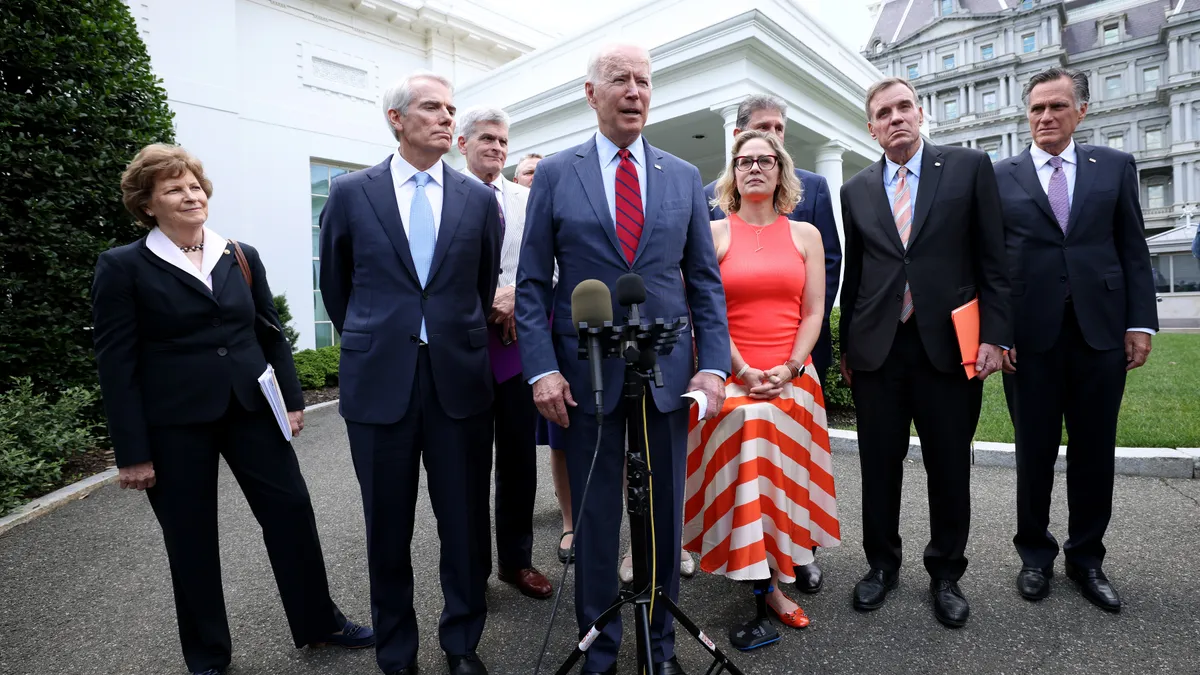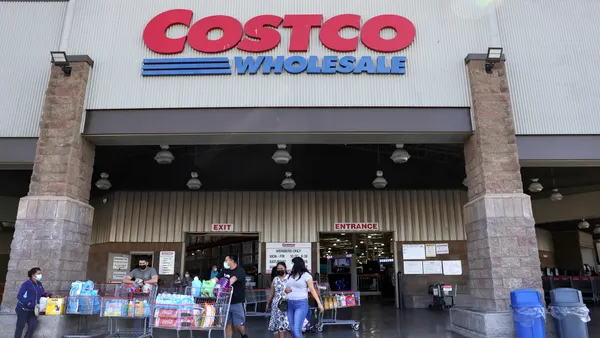As President Joe Biden said on Saturday, it's finally infrastructure week.
Both houses of Congress last week passed a sweeping, trillion-dollar package that includes more than $550 billion in spending on projects that Wells Fargo analysts describe as having a "broad focus on strengthening supply chains and infrastructure, with a backdrop of clean energy, lower emissions and more consumer-facing broadband infrastructure."
Key retail groups hailed the development, which Biden is set to sign "soon."
"I'm not doing it this weekend because I want people who worked so hard to get this done — Democrats and Republicans — to be here when we sign it," he said, according to a White House transcript.
Both the National Retail Federation and the Retail Industry Leaders Association noted the benefits to the supply chain, which continues to be plagued by bottlenecks, shortages and delays, even as the pandemic has eased.
"This substantial influx of investment in our roads, ports, bridges and other core infrastructure will further enable businesses to meet burgeoning consumer demand and promote economic growth," NRF CEO Matthew Shay said in a statement. "The prioritization of our nation's fundamental transportation network will mitigate many of the supply chain challenges businesses are experiencing today and will pave the way for a 21st century infrastructure system that can withstand future disruptions."
Earlier this month, NRF launched a six-figure television, radio and digital ad campaign urging the bill's passage. Despite bipartisan support, the bill had been the subject of much wrangling since the Senate's approval of it during the summer, as various factions within both parties threatened to withhold their votes on the final package.
Michael Hanson, RILA senior executive vice president of public affairs, noted the perennial nature of infrastructure talk in the nation's capital, saying in a statement: "Washington has been talking about the need to make a massive investment in infrastructure for more than two decades, and we are excited to see this bill head to President Biden's desk for his signature."
A major sticking point in every discussion of infrastructure spending through the years has been how to pay for it, and that was true during this year's negotiations as well. An effort to raise the corporate tax rate to 28% was ditched earlier this year when that became a sticking point. RILA's Hanson applauded the industry's success in keeping the corporate tax rate at 21%, which the organization called "great news for retailers."
Instead the legislation's invoices will be paid by cracking down on tax collection and leveraging money left over from COVID-19 relief funds and federal unemployment assistance.















